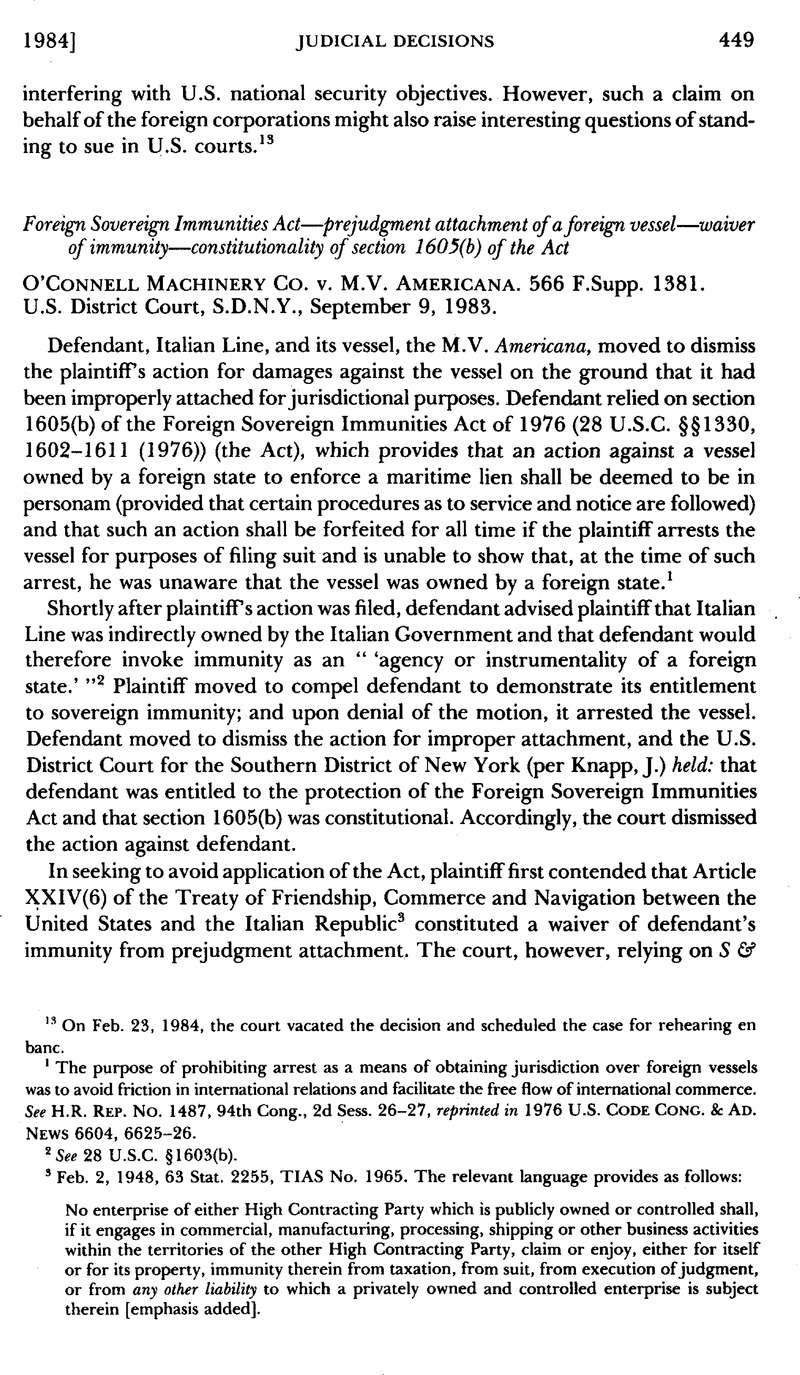No CrossRef data available.
Published online by Cambridge University Press: 27 February 2017

1 The purpose of prohibiting arrest as a means of obtaining jurisdiction over foreign vessels was to avoid friction in international relations and facilitate the free flow of international commerce. See H.R. Rep. No. 1487, 94th Cong., 2d Sess. 26–27, reprinted in 1976 U.S. Code Cong. & Ad. News 6604, 6625–26.
2 See 28 U.S.C. § 1603(b).
3 Feb. 2, 1948, 63 Stat. 2255, TIAS No. 1965. The relevant language provides as follows:
No enterprise of either High Contracting Party which is publicly owned or controlled shall, if it engages in commercial, manufacturing, processing, shipping or other business activities within the territories of the other High Contracting Party, claim or enjoy, either for itself or for its property, immunity therein from taxation, from suit, from execution of judgment, or from any other liability to which a privately owned and controlled enterprise is subject therein [emphasis added].
4 706 F.2d 411 (2d Cir. 1983), summarized in 77 AJIL 880 (1983). See also Libra Bank Ltd. v. Banco Nacional de Costa Rica, 676 F.2d 47 (2d Cir. 1982), summarized in 76 AJIL 851 (1982).
5 566 F. Supp. 1381, 1384 (quoting S & S Machinery Co., supra note 4, at 415). The relationship of Italian Line to the Republic of Italy was described by the court as follows:
[T]he majority of the shares of Italian Line is owned by FINAMARE, a “subdivision of the Instituto per la Riconstruzione Industriale (‘IRI’), a government entity which coordinates the management of Italian government enterprises. IRI’s annual budget and plans, in turn, are approved by a member of the Italian cabinet and, ultimately, submitted to the Parliament. . . .”
566 F. Supp. at 1384.
6 566 F. Supp. at 1386.
7 11 U.S. (7 Cranch) 116 (1812).
8 566 F. Supp. at 1386.